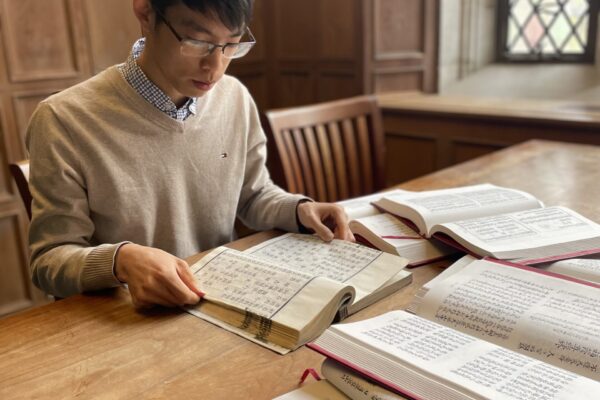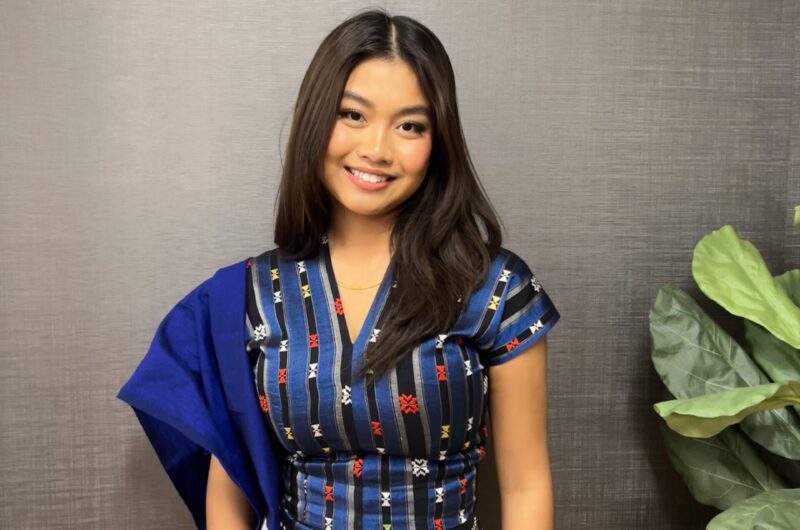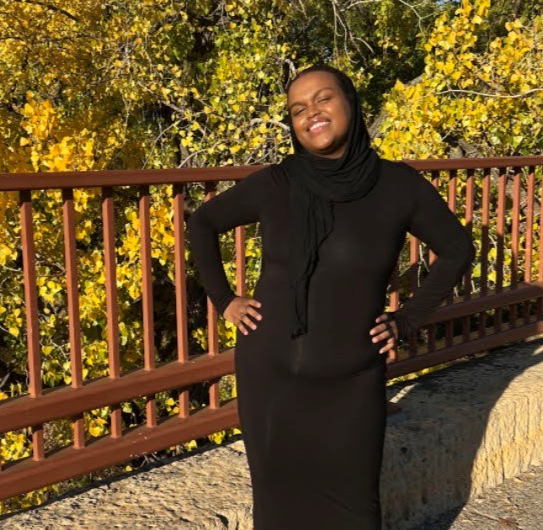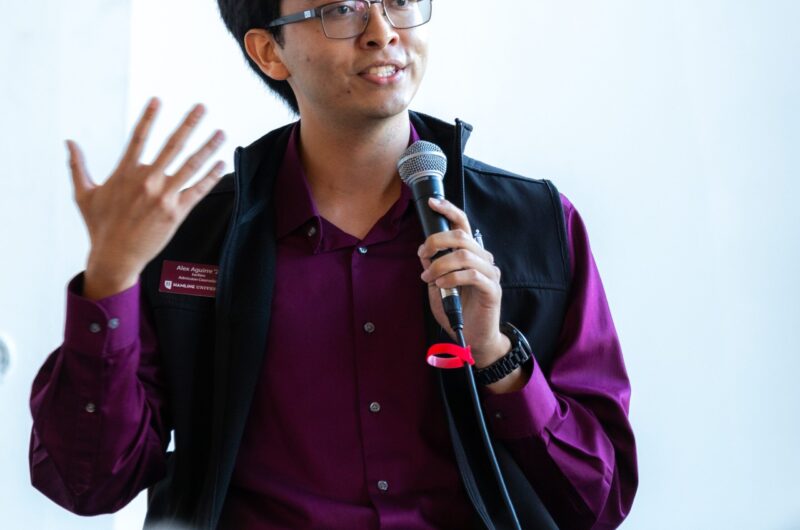
I’m Andrew Nguy. I graduated from David Douglas High School in 2015 as one of the first College Possible student cohorts in Oregon, and I graduated from Pomona College in 2019 majoring in Asian studies and minoring in Japanese language and literature.
When I started college, I knew that my education would not stop at a college degree. I wasn’t sure how I would get there, but even in middle school I was fascinated with how our understanding of history is decided. These questions intensified in high school, as a lot of my teachers told me, “Ah, you’ll get to do more of this in college.” Sure enough, Pomona College was the perfect fit for an inquisitive 18-year-old me, providing ample opportunity to chat with professors during office hours and in the dining halls about what it means to “contribute to a field of knowledge.” I didn’t want to be a passive consumer of research. I wanted to be on the front lines of it; and while I always associated research with microscopes, test tubes and lab coats, my research looks very different. Most of the time, I’m in a climate-controlled room in the library decoding manuscripts scrawled in dead languages to show the rest of the world just how valuable it is to learn about and preserve humanity’s interconnected past.
Ever since I joined College Possible, I was confident that I would be the first in my family to graduate from college. But then I thought—why stop there? What if I’m the first in my family to get my master’s degree? My doctorate degree? Over the years, plenty of my cousins have gone on to enroll and graduate from college themselves, and among them, I see amazing role models for the next generation of my giant extended family. We have budding accountants, consultants, engineers and doctors, and I thought—how cool would it be for me to set an example as the humanities person in my family?
As a first-gen college graduate, there’s a lot my family doesn’t understand about the arcane world of college admissions and even more so of academia. It’s simply a world that they’ve never experienced. In high school, College Possible helped dispel a lot of myths about the cost of college and what defines a “good” college, and in the years since I started graduate school, I feel like my very existence has been dispelling myths about the academic path. For instance, plenty of my cousins were dissuaded from graduate studies because they believed it to be expensive, but my existence shows concrete evidence that students can and do get tuition waivers and stipends. Others worried that graduate degrees in the humanities only lead to academic jobs, but then I show them how many of my classmates pivot back into their respective industries after a Ph.D.
Right now, I am finishing my MA in East Asian studies. When people press, I might say my official topic, which is Buddhist sermons in China between (roughly) 1300 to 1900. Yawn. The way I like to phrase it is:
I’m studying the factors which create new traditions and reinvent them over time. Specifically, I am analyzing the minute transformations in one Chinese Buddhist funeral tradition over the course of six hundred years and seeing how this phenomenon can illuminate the process of change in other cultural, religious and social traditions.
There’s a lot I like about my work, but in my current project, I get especially excited when I stumble across manuscripts that don’t appear in any library in the world. To think of libraries as repositories of knowledge, and then to think that there are books which are so rare that they simply don’t exist in any catalogue in any library, then to realize that I am holding this unique, irreplicable manuscript and have the opportunity to make it accessible to a wider population—that is absolutely mind-blowing.
To be entirely transparent, these books don’t hold the secrets to the universe or anything, but they show immense richness and variance in religious traditions in Chinese during the 1800s.
As I shift into more mentoring and teaching roles, a lot of what I try to do as a mentor is rooted in the mentoring I received as a high school student with College Possible. Informally, I would give advice to my peers and juniors while I was in college, and during my stint as a College Possible high school coach, everything I had received and absorbed in the years prior surfaced in my coaching.
As a coach, I remember facilitating the transition of 287 students as they prepared for fall enrollment during the first summer of the pandemic. As I emailed, texted, and called each of them, I learned their stories and aspirations, and each of them was unique. Over the years, I’ve received varying levels of support and advice from those around me, and in my own mentoring, I strive to make the student’s vision a reality rather than impose my own vision on them. This was something that I received from my time at College Possible, and it’s something I am still sharing with others.
This winter, I’ll apply to Ph.D. programs. Ultimately, I hope to curate and present specialized knowledge to a general audience, whether that be to college students in class, to readers at a library, or to visitors at a museum. In the meantime, I have more languages to learn and more manuscripts to read!



